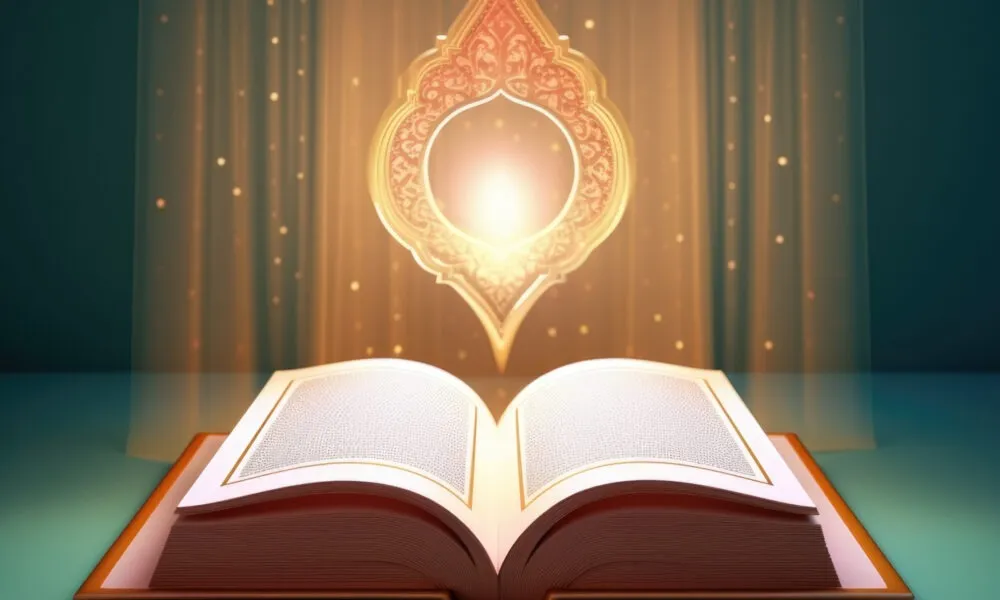Table of Contents
Introduction
Welcome to our Book of Revelation Summary!
The Book of Revelation, the final book of the New Testament, is a captivating narrative filled with vivid imagery, symbolic language, and prophetic visions.
Revelation offers a glimpse into the cosmic battle between good and evil, the ultimate triumph of righteousness, and the promise of a new heaven and earth.
Throughout history, Revelation has captivated readers with its mysterious symbols, prophecies, and apocalyptic themes.
It has sparked countless interpretations and debates among theologians, scholars, and believers alike.
In this summary, we’ll delve into the key themes, symbols, and interpretations of the Book of Revelation, shedding light on its significance for both ancient audiences and modern readers.
Who Wrote the Book of Revelation?
The Book of Revelation, also known as the Apocalypse of John, is traditionally attributed to John the Apostle, one of the twelve disciples of Jesus Christ.
However, there is some debate among scholars about the exact identity of the author. Some argue that it could have been another John or a different individual altogether. The authorship of the Book of Revelation remains a topic of discussion and interpretation among scholars and theologians.
Context and Background of Book of Revelation
The Book of Revelation is like the grand finale of the Bible’s New Testament. It’s full of visions and messages that were sent to a guy named John, who was stuck on an island called Patmos a long time ago, around when the Romans were in charge.
John is on this island, and he starts having these really intense dreams and visions. In these dreams, he sees angels and crazy creatures, and he hears messages from God. It’s like he’s watching a movie about the end of the world, with all sorts of action scenes and dramatic moments.
Now, John wasn’t just dreaming for fun. He was writing down everything he saw and heard, and he sent these writings to seven churches in a place called Asia Minor, which is Turkey now.
These churches were struggling with tough times, like getting picked on for believing in Jesus.
So, what’s the big deal with these visions? Well, they’re all about showing that even though things might seem really scary and chaotic, God is still in control.
They talk about how Jesus is like the hero who defeats the bad guys and saves the day. And even though there’s some scary stuff about judgment and the end of the world, there’s also a message of hope, saying that everything will turn out okay in the end.
Imagine you’re watching a scary movie, but at the end, the hero wins, and everything goes back to normal. That’s kind of what Revelation is like.
It’s a message of hope for people who are going through tough times, reminding them that God is with them and that there’s a happy ending waiting.
So, when you read the Book of Revelation, remember that it’s not just a bunch of weird dreams.
It’s a message of hope and encouragement for people who are facing hard times, reminding them that God is always there, no matter what.
Main theme and Purpose of Book of Revelation
The main theme of the Book of Revelation is to show that, even in the midst of difficult times, God is in control and will ultimately triumph over evil.
It’s a message of hope and encouragement for believers facing persecution and challenges.
The purpose of Revelation is to strengthen the faith of Christians and reassure them that God’s plan for the world will prevail.
Through its vivid imagery and symbolic language, Revelation aims to inspire perseverance, faithfulness, and trust in God’s ultimate victory.
What Can We Learn from Book of Revelation?
The Book of Revelation teaches us an important things:
God’s Power and Plan:
It shows us that God is in control of everything, even when things seem chaotic or scary. It tells us that God has a plan for the future, and it will ultimately be good.
Good vs. Evil:
The book talks a lot about a battle between good and evil.
It reminds us that there’s always a struggle between doing what’s right and what’s wrong, but in the end, good wins.
Hope and Perseverance:
Even when things get tough, Revelation gives us hope.
It tells us to keep believing in God and to keep doing what’s right, even when it’s hard.
End Times:
It talks about the end of the world and what will happen in the future.
While some parts might seem scary, it’s also a reminder to be ready and to live our lives in a way that honors God.
Overall, Revelation is a book of encouragement, reminding us to trust in God, stay strong in our faith, and be prepared for whatever the future holds.
Our Favorite Verses from Book of Revelation
The Book of Revelation is filled with powerful verses that inspire and encourage believers. Here are a few of our favorites:
Revelation 21:4
“He will wipe every tear from their eyes. There will be no more death’ or mourning or crying or pain, for the old order of things has passed away.”
This verse reminds us of the hope we have in God’s ultimate plan, where suffering and pain will be no more.
Revelation 3:20
“Here I am! I stand at the door and knock. If anyone hears my voice and opens the door, I will come in and eat with that person, and they with me.”
This verse symbolizes Jesus’ invitation for us to welcome Him into our lives, offering us companionship and guidance.
Revelation 22:13
“I am the Alpha and the Omega, the First and the Last, the Beginning and the End.”
This verse highlights God’s sovereignty and eternal nature, reassuring us that He is in control of all things from the beginning to the end.
Revelation 22:20
“He who testifies to these things says, ‘Yes, I am coming soon.’ Amen. Come, Lord Jesus.”
This final verse of Revelation expresses the longing of believers for the return of Jesus Christ, signaling the fulfillment of God’s promises and the ultimate triumph of good over evil.
These verses from Revelation offer comfort, hope, and a reminder of God’s faithfulness to His people throughout history.
FAQ’s on Book of Revelation Summary
1. What are the seven seals in Revelation?
First Seal: White horse symbolizes conquest/false ideologies.
Second Seal: Red horse represents war and conflict.
Third Seal: Black horse signifies famine and scarcity.
Fourth Seal: Pale horse symbolizes death and pestilence.
Fifth Seal: Souls under the altar cry out for justice, representing persecution of believers.
Sixth Seal: Cataclysmic events – earthquakes, cosmic disturbances – signal divine judgment.
Seventh Seal: Silence in heaven, followed by seven trumpets, ushering in further judgments and God’s plan for redemption.
2. Who breaks the 7 seals in the Bible?
The seven seals in the Bible are broken by the Lamb of God, symbolizing Jesus Christ.
3. Why is the number 7 God’s number?
The number 7 holds profound significance across various religious and cultural traditions, often regarded as God’s number.
In the Bible, it symbolizes completion and perfection, evident in the seven days of creation and other divine acts.
Beyond Christianity, it represents completeness in numerous aspects of life, from the seven colors of the rainbow to the seven wonders of the ancient world.
It embodies spiritual perfection and divine order, transcending mere numerical value to symbolize the profound connection between humanity and the divine.
4. Who is the Lion in Revelation?
In the Book of Revelation, the Lion represents Jesus Christ. Specifically, in Revelation 5:5, Jesus is referred to as the Lion of the tribe of Judah, a symbol of strength, royalty, and authority.
This imagery emphasizes Jesus’ sovereignty and power as the Messiah, who will ultimately triumph over evil and establish God’s kingdom.
5. Who killed lion in the Bible?
In the Bible, one notable instance of a lion being killed involves the story of Samson, a judge of Israel, as recorded in the book of Judges, chapter 14.
Samson encounters a lion while traveling to Timnah, and, through the Spirit of the Lord, he is able to tear the lion apart with his bare hands.
This event demonstrates Samson’s extraordinary strength and serves as a prelude to his later exploits.
6. What happens every 7 years in the Bible?
Every seven years in the Bible, there’s a special time called the “Sabbath Year.”
During this year, the land takes a break from farming, debts are forgiven, and slaves are set free.
It’s a time of rest for the earth, a fresh start for those in debt, and freedom for those in servitude.
This cycle of rest and renewal highlights principles of compassion, stewardship, and social justice found throughout the Bible.
7. Is 2024 a jubilee year?
Determining whether a specific year, like 2024, is a Jubilee year depends on interpretations and calculations that vary among religious traditions.
In the Bible, the Jubilee Year, occurring every 50 years, involves the forgiveness of debts, the release of slaves, and the return of ancestral lands.
Different interpretations of biblical texts and historical data lead to differing opinions on the timing of Jubilee years.
Therefore, whether 2024 is regarded as a Jubilee year would rely on the specific calculations and beliefs of each religious community or scholar.


